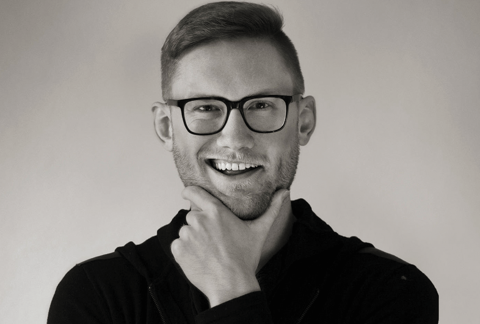
Matthias Roberts is a psychotherapist, host of the Queerology podcast, and author of Holy Runaways: Rediscovering Faith After Being Burned by Religion.
Posts By This Author
How To Find Healing From Religious Trauma
A spiritual trauma therapist on why compassionate community is part of the journey.
THE FIRST TIME I became conscious that I was carrying the effects of religious trauma, I had just moved to Seattle and was sitting in a church, sweating.
My heart was beating fast; I couldn’t understand what was happening. This church, one I had chosen expressly because of its progressive, LGBTQ+ affirming stance, was supposed to be safe for someone like me, a queer person who deeply valued my faith. But I didn’t feel safe. I looked at the faces in the room with suspicion, searching for any indication of a bait-and-switch, and left the building quickly once the service was over.
Despite what I knew about the church — they welcomed LGBTQ+ people at any level of leadership, were committed to anti-racism work, and weren’t afraid of doubt or theological exploration — my body told me another story. As I sat in the cold folding chair, I tried to reason with myself, repeating these facts to calm down. But I didn’t feel calmer; I felt worse. I sat on my hands, legs shaking, as I waited for the service to end.
Because I had moved to Seattle to work on a master’s degree in counseling psychology from an institution that specialized in trauma, I soon learned what had happened: In that moment, my body had experienced the effects of trauma. Even though I cognitively knew the church was supposed to be safe, my body couldn’t discern this church from all the churches I had been in before — churches filled with people who weren’t afraid to tell me I needed to become straight for God to save me from hell. My body was sending warning signs: Be careful, environments like this aren’t safe. Despite the years of work I had done to detach myself from the rigid belief system of my youth, despite the ways I had fought to find a more life-giving approach to theology, I was beginning to reckon with the reality that changing my beliefs didn’t mean I had healed from the environments in which I was raised.
Now, years later, I see more people waking up to the realities of lingering religious trauma. When I scroll through my streaming apps, I see documentaries such as Shiny Happy People, Pray Away, and Hillsong: A Megachurch Exposed that detail different forms of religious harm. I think this growing awareness of religious trauma is part of the driving force behind “deconstruction,” a buzzword that describes the process of reevaluating, changing, and sometimes abandoning one’s beliefs. But what I don’t see as often on Netflix — or on podcasts or on social media or at church — is honest talk about the process of healing. And as someone who now works as a therapist helping survivors of religious harm find healing, I know there is a lot more to say.
And They Were Not Ashamed
A conversation with Matthias Roberts, author of "Beyond Shame: Creating a Healthy Sex Life on Your Own Terms."
Sojourners: Why write a book on sex and faith and shame?
Matthias Roberts: Many of us who grew up within purity culture have rejected the strict, moralistic guidelines around sex and sexuality we were raised with, but aren’t sure what beliefs we do still hold. As a counselor, I noticed coping mechanisms that aren’t necessarily the mosthealthy ways to work with our sexuality. I hope to name what those unhealthy coping mechanisms are and chart a way forward.
What is sexual shame? Shame is a core response that we have that makes us turn away. When things within our sexuality make us want to turn away from either ourselves or other people, we get sexual shame. Sexual shame affects us relationally—and not just within our sexual relationships. It can look like secrecy and avoidance: We’ve been taught we can’t express sexuality outside of particular contexts and yet most people are, so we hide that away, lie about it, or pretend it’s not there.

